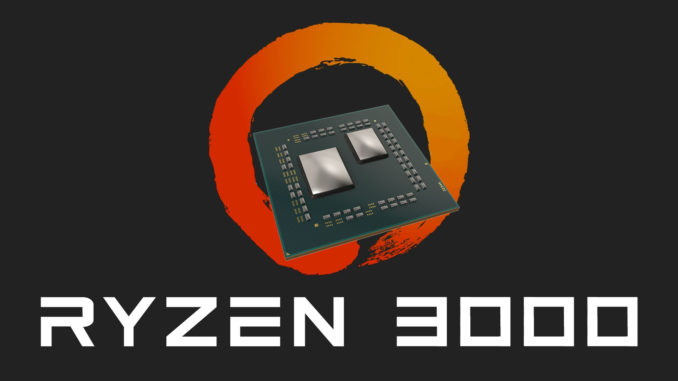
The mainboard manufacturers are distributing the first BIOS updates for the launch of Ryzen 3000. Apparently, B350 and A320 mainboards are also compatible.
Ryzen 3000 stays with AM4 even with 16 cores
With new processor generations, the required motherboard socket often changes as well. Intel’s practice is that only two generations of processors are compatible with each other. Especially with the last two generations, which are still based on the Skylake architecture and even use the same socket (with changed pin layout), the question arises why this is necessary. Intel stated that a modified power supply was necessary for more cores that were introduced with Coffee Lake and Coffee Lake Refresh. The extreme overclocker der8auer proved the opposite with a experiment in which he taped power supply pins. With a few tricks and changes, the processors are also compatible with older motherboards. Even the i9-9900K with eight cores still runs on Z170 mainboards – even at up to 5.5 GHz. At the end of the day, Intel’s policy will probably also have profit reasons.
Fortunately, the situation is different at the competitor AMD. With Ryzen 3000, the third generation of Ryzen processors will soon be on the market. With the new product family, AMD has also introduced a new socket called AM4. Already in the first generation it became known that AM4 should be supported until 2020. Whether this meant compatibility with new processors was not clear at the time. The second Ryzen generation then already ran smoothly on all motherboards of the first generation. And it should not be any different for the soon to come third generation either. This is also confirmed by BIOS updates of the mainboard manufacturers for X370 and X470 mainboards in the last few days. Ryzen 3000 also relies on the AM4 socket, despite a doubling to up to 16 cores and a reported TDP of 135 watts. But even the cheaper chipsets should be able to handle Ryzen 3000 processors.
Ryzen 3000 also compatible with B350 and A320
In addition to the high-end mainboards with the X370 and X470 chipsets, AMD also offers other chipsets for the mid-range and entry-level segment. With the first generation, motherboards with B350 and A320 chipsets came onto the market. Mainboards with a B350 chipset in particular enjoyed great popularity, since they can also be overclocked and therefore a mainboard with an X370 chipset is not necessarily required. The A320 continues to be particularly popular in the entry-level segment as AMD has not released a successor for the second generation.
The fact that the X370 and X470 high-end chipsets are compatible with the new Ryzen generation has been known for some time. But also the cheaper chipsets should be compatible. This is now also confirmed by BIOS updates from Asus. The motherboard manufacturer has recently started rolling out new BIOS versions with AGESA 0.0.7.2 or 0.0.7.0 for most B350 and A320 motherboards. Even the cheapest motherboard called Asus Prime A320M-K gets an update to the new version. This should confirm that the new Ryzen 3000 processors fit even on the cheapest motherboards of the older generation. How useful a 16-core like the leaked Ryzen 9 3850X on an A320 mainboard is, of course, left open, but if you simply want to keep your mainboard, AMD offers the possibility.

But the chipset does not have active dissipation with a fan as they show on new motherboards. So how would we use an A320 with a 16-core microprocessor? I do not understand.
These chipsets don’t have to power PCIe 4.0 and other heaty things like X570, so they will also work without a fan.
So happy that the a320 will be able to use the 3000 series!